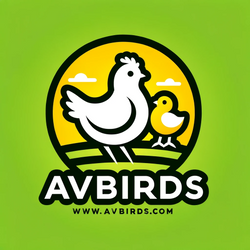When you’re hunting for ducks for sale, the choices can feel overwhelming. Picture this, you step out at dawn to gather fresh eggs, hear soft quacks, and watch your flock happily forage—that’s the joy ducks bring to your homestead. In this guide you’ll learn why ducks are such a great addition, which breeds to consider, where to find healthy stock, and how to care for them from day one.
You’ll walk away knowing how to pick the right breed, navigate federal permits, set up proper housing, and avoid common pitfalls. Ready to waddle down the path of duck keeping? Let’s dive in.
Why Add Ducks To Your Homestead
Ducks do more than look charming around your pond. They:
- Provide a steady supply of rich eggs
- Help control slugs, snails, and garden pests
- Offer flavorful meat if you choose dual-purpose breeds
- Entertain with amusing behaviors and friendly quacks
Who doesn’t love fresh eggs every morning and a cleaner garden? Plus, ducks tolerate cold weather better than chickens and thrive in free-range setups.
Choosing The Right Duck Breed
Picking a breed comes down to your goals—eggs, meat, or multitasking as garden pest patrol. Let’s break down top options.
Popular Backyard Breeds
| Breed | Eggs/Week | Purpose | Temperament |
|---|---|---|---|
| Pekin | 5–7 | Dual-purpose | Friendly |
| Khaki Campbell | 5–7 | Egg layer | Energetic |
| Silver Appleyard | 3–5 | Dual-purpose | Calm |
| Cayuga | 3–5 | Exhibition/eggs | Calm |
| Runner | 4–5 | Egg layer | Nervous |
Table data via The Cape Coop and McMurray Hatchery Blog.
Egg Layers vs Meat Ducks
- Egg Layers: Khaki Campbell, Runner, Golden Cascade
- Meat Ducks: Pekin, Jumbo Pekin, Muscovy (dark, veal-like meat)
- Dual-Purpose: Silver Appleyard, Rouen, Buff Orpington Duck
Considering Temperament And Climate
If you want friendly flock members for kids, choose calm breeds like Silver Appleyard or Cayuga. For cold-hardy birds, most mallard-type ducks handle frost well. Runners may shy away when startled, so plan accordingly.
Finding Reliable Duck Suppliers
Knowing where to buy ensures you start with healthy birds. Here are two reputable hatcheries:
- Ideal Poultry maintains over 50,000 breeders and offers 9 breeds of ducks plus ducklings for sale year-round (Ideal Poultry).
- Metzer Farms has hatched 32 duck breeds and offers small minimums for ducklings and goslings for sale (minimum order three ducklings) (Metzer Farms).
When you shop, ask about:
- Vaccination status and biosecurity measures
- Shipping live birds and minimum orders
- Breed purity, especially for heritage or rare types
You can also diversify with geese for sale or turkey poults for sale to build a mixed flock.
Understanding Permit Requirements
Selling, donating, or otherwise disposing of most waterfowl requires a federal permit.
Federal Waterfowl Permit
Under the Migratory Bird Treaty Act, you need a Waterfowl Sale and Disposal Permit before transferring captive-reared ducks or geese. Full details are on FWS.gov.
Marking And Transfer Rules
Captured waterfowl must be properly marked before 6 weeks of age. Each sale or transfer needs Form 3-186, Notice of Waterfowl Transfer or Sale. See marking requirements at Cornell Law School.
Providing Proper Duck Care
Getting care right from day one sets you up for success. Focus on housing, nutrition, and water access.
Housing And Brooder Setup
- Keep ducklings warm under a heat lamp, around 90°F in week one
- Provide 2 square feet per duckling, adding space weekly
- Use slip-resistant flooring and change bedding often
Nutrition Needs At Life Stages
- Starter Diet (First 3 weeks): High protein and calories
- Maintenance Feed (Weeks 4–13): 14% protein crumble
- Layer Or Breeder Diet (Adults): 16–17% protein, extra calcium
All diets should be crumbles or pellets formulated for waterfowl. Clean water must be accessible at all times for drinking and bathing to prevent botulism (For The Birds DVM).
Tips For A Smooth Start
Here’s how to avoid rookie mistakes:
- Quarantine new arrivals for two weeks to prevent disease spread
- Ask sellers detailed questions about lineage and health
- Be patient when sourcing rare breeds; one homesteader waited 18 months for Cayuga ducks (MeatEater)
- Never release domestic ducks to the wild—Muscovy ducks must stay confined for sale (Cornell Law School)
Key Takeaways
- Ducks enrich your homestead with eggs, pest control, and companionship
- Choose breeds based on purpose, temperament, and climate
- Source from trusted hatcheries like Ideal Poultry or Metzer Farms
- Secure necessary waterfowl permits and mark birds correctly
- Provide proper housing, feed, and constant fresh water
- Quarantine new birds, ask the right questions, and stay patient
Ready to add quacking friends to your homestead? Start by ordering a few healthy ducklings, set up their brooder, and you’ll be gathering farm-fresh eggs in no time.

